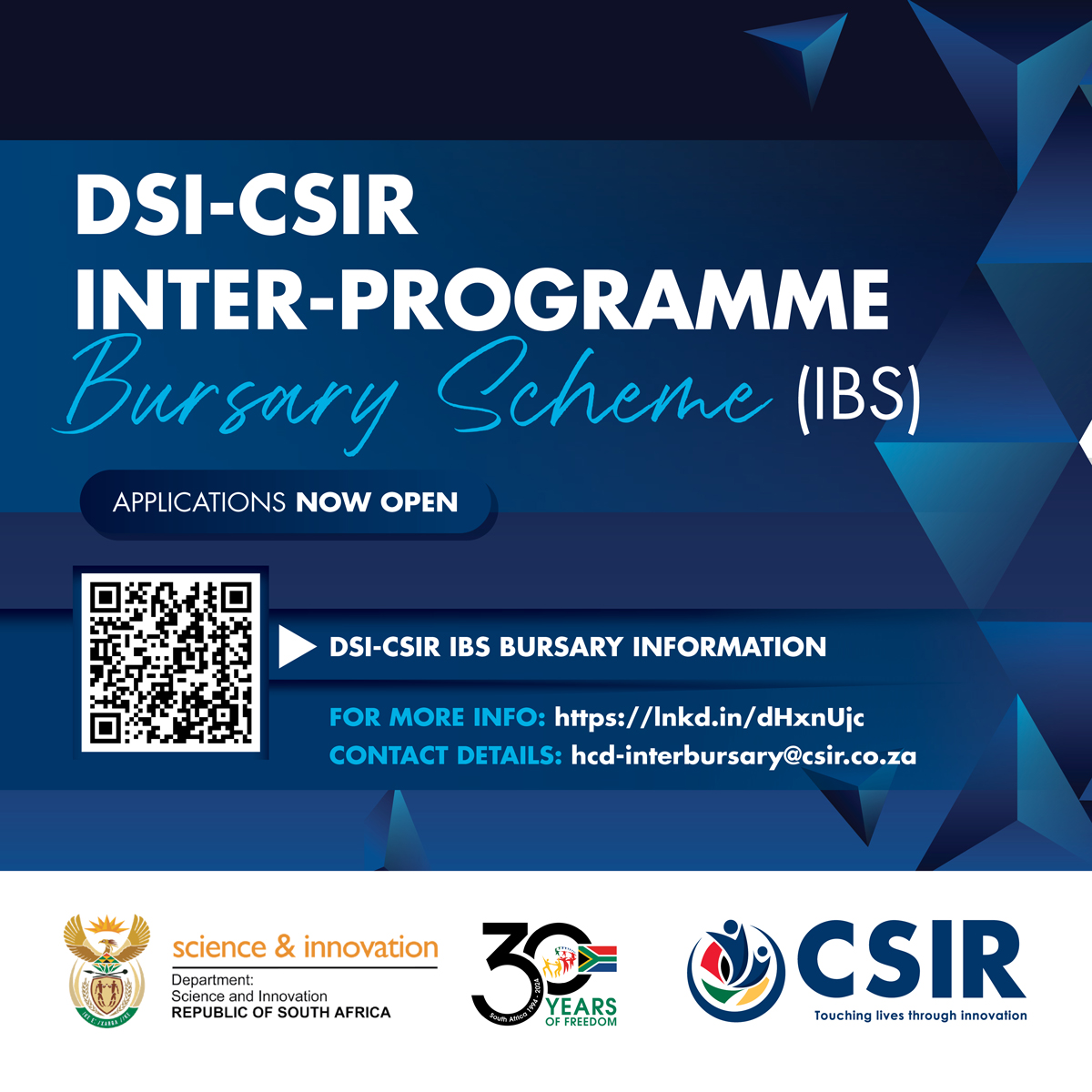Announcements
Call for applications: DSI-CSIR Inter-Bursary Support Programme 2025
The closing date for applications is 31 August 2024.
The Department of Science and Innovation (DSI) and the Council for Scientific and Industrial Research (CSIR) have opened the above call for applications.
Background
The Department of Science and Innovation (DSI) has recently launched its inter-programme postgraduate bursary support scheme, aimed at supporting capacity development in strategic and priority areas identified in key departmental strategies. The Council for Scientific and Industrial Research (CSIR) is supporting the DSI in the development of skills in these areas. The IBS postgraduate bursary support is intended for full-time studies for honours/4th-year Engineering/postgraduate diploma, master's or PhD degrees at any South African public university. Click here for more information.
The focus areas for the bursary support are restricted to the following research areas:
- Mining
- Modelling and Digital Sciences
- Microsystems Technology
- Titanium (Manufacturing Elements)
- Photonics
- Biotechnology (Biopharming, Bioprocessing or Biocatalysis)
- Information and Communications Technology
- IKS (Indigenous Knowledge Systems)
- Health
Preference will be given to those whose study areas are aligned with the above-mentioned priority research areas.
Value of the bursary per annum
- Honours: R130 000
- Master's: R140 000
- PhD: R160 000
Application process
Please complete the online application form and submit all the required supporting documents on the application system: https://www.csir.auraams.app
Feedback
Feedback will ONLY be sent to successful applicants, within two months of the closing date of the applications. If you do not receive any feedback within two months of the closing date of applications, please consider your application to be unsuccessful.
Publish date: 2024/08/15
